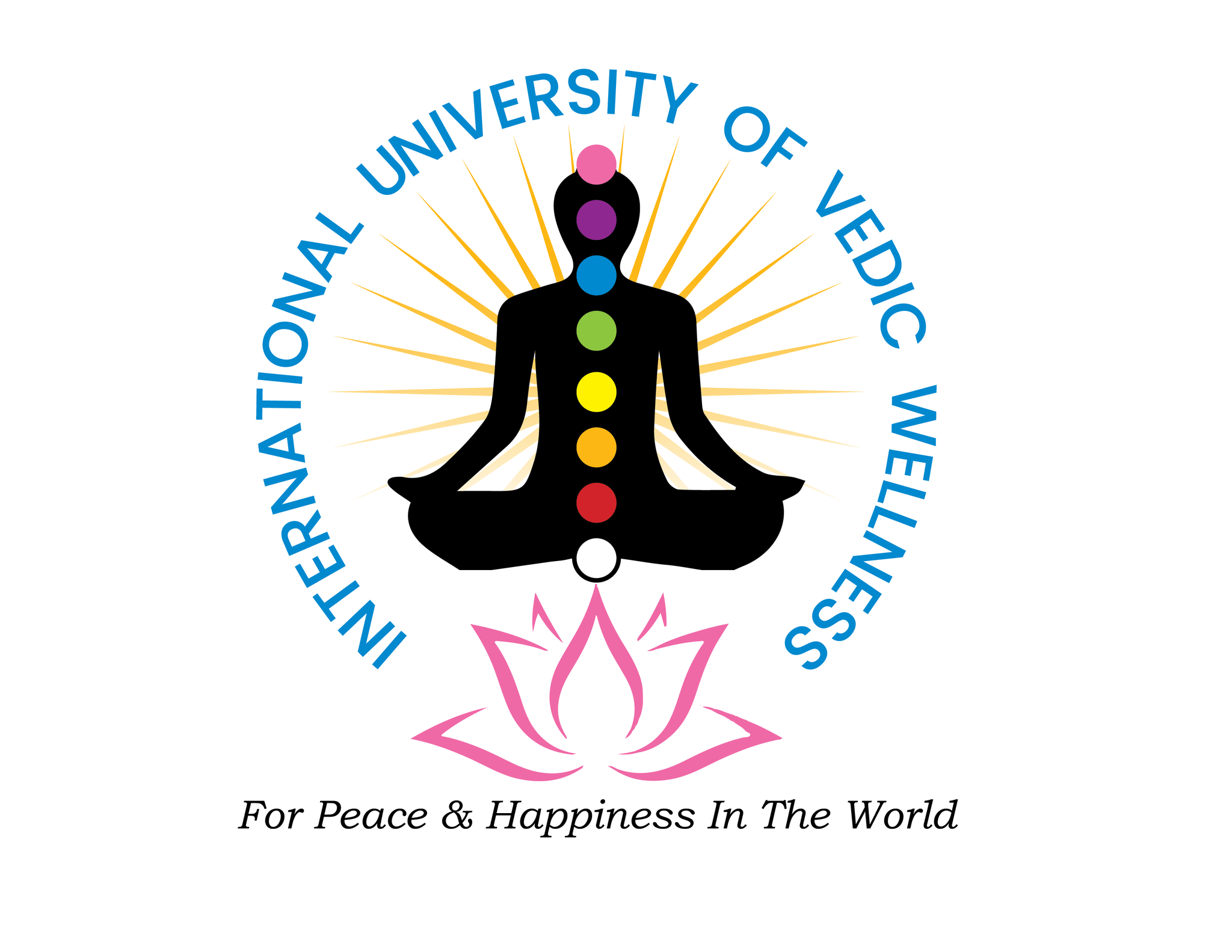Introduction
In an era marked by rapid technological advancements and scientific breakthroughs, it may seem counterintuitive to turn to ancient wisdom for guidance. However, the Vedic sciences, a vast body of knowledge originating in ancient India, hold timeless insights that remain deeply relevant in the modern world. Rooted in the Vedas, the oldest scriptures of Hinduism, Vedic science encompasses a wide range of disciplines, including Ayurveda, Yoga, Vastu Shastra, Jyotish, and Vedic mathematics. These ancient systems offer a holistic approach to understanding the universe and our place within it, providing practical tools for enhancing our physical, mental, and spiritual well-being. By exploring the importance of Vedic science in the modern era, we can discover how this ancient wisdom can help us navigate the complexities of contemporary life and unlock our full potential
In a world that often prioritizes material success and external achievements, Vedic science offers a refreshing perspective that emphasizes inner growth and harmony with nature. It recognizes the interconnectedness of all things and provides a framework for living in alignment with universal principles. By integrating the teachings of Vedic science into our modern lives, we can cultivate greater self-awareness, resilience, and overall well-being. This blog post aims to illuminate the various facets of Vedic science and demonstrate how its timeless wisdom can enrich our lives in the modern era. Whether you are a curious seeker or a dedicated practitioner, exploring the depths of Vedic science can offer profound insights and practical tools for navigating the challenges and opportunities of contemporary life.
Ayurveda – The Science of Life
Ayurveda, a cornerstone of Vedic science, is a comprehensive system of natural healthcare that has been practiced in India for over 5,000 years. The word “Ayurveda” is derived from the Sanskrit words “ayus,” meaning life, and “veda,” meaning knowledge or science. Ayurveda views health as a state of balance between the body, mind, and spirit, and seeks to maintain this balance through a personalized approach to diet, lifestyle, and herbal remedies.
In the modern era, Ayurveda offers a much-needed alternative to the often symptom-focused approach of Western medicine. By addressing the root causes of imbalances and promoting preventive care, Ayurveda empowers individuals to take charge of their own health and well-being. The Ayurvedic concept of “prakruti,” or individual constitution, recognizes that each person has a unique combination of physical, mental, and emotional characteristics that influence their health. By understanding their prakruti, individuals can make informed choices about their diet, lifestyle, and self-care practices to maintain optimal health and prevent disease.
Ayurvedic principles can be applied to modern life in numerous ways, from adopting a sattvic (pure and balanced) diet to incorporating daily routines like oil pulling and self-massage. Ayurvedic herbs and formulations, such as Ashwagandha and Triphala, have gained widespread popularity for their adaptogenic and rejuvenating properties. Modern research has also begun to validate the efficacy of Ayurvedic treatments for a range of health conditions, from digestive disorders to chronic stress. By integrating Ayurvedic wisdom into our modern healthcare paradigm, we can foster a more holistic and personalized approach to well-being that honors the unique needs of each individual.
Yoga – Union of Body, Mind, and Spirit
Yoga, another integral component of Vedic science, has gained immense popularity worldwide in recent decades. While often associated with physical postures (asanas), yoga encompasses a wide range of practices designed to promote the integration of body, mind, and spirit. The ultimate goal of yoga is to achieve a state of union with the divine, or a realization of our true nature as pure consciousness.
In the modern era, yoga has become increasingly relevant as a tool for managing stress, improving physical health, and cultivating mental clarity and emotional balance. The physical postures of yoga help to strengthen and flexibility the body, while breathing techniques (pranayama) and meditation practices calm the mind and promote inner peace. Regular yoga practice has been shown to have numerous health benefits, from reducing chronic pain and inflammation to improving cardiovascular health and enhancing cognitive function.
Beyond its physical benefits, yoga offers a profound path for personal growth and self-discovery. The ethical principles of yoga, known as the yamas and niyamas, provide a framework for living with integrity, compassion, and self-discipline. Practicing yoga can help us develop greater self-awareness, emotional resilience, and a deeper connection to our inner wisdom. In a world that often pulls us outward, yoga invites us to turn inward and cultivate a relationship with our true selves.
Integrating yoga into modern life can take many forms, from attending studio classes to developing a personal home practice. With the abundance of online resources and instructional videos, yoga has become more accessible than ever before. Whether practiced as a physical workout or a spiritual discipline, yoga offers a timeless path for achieving optimal health, inner peace, and personal transformation in the modern era.
Vastu Shastra – The Science of Sacred Architecture
Vastu Shastra, the ancient Indian science of sacred architecture, offers profound insights into the relationship between the built environment and human well-being. Vastu principles are based on the understanding that everything in the universe, including our homes and workplaces, is permeated by subtle energy fields that influence our physical, mental, and emotional states. By aligning our living spaces with the natural laws of the universe, Vastu Shastra seeks to create harmonious and supportive environments that promote health, prosperity, and spiritual growth.
In the modern era, the principles of Vastu Shastra can be applied to the design and construction of homes, offices, and public spaces. Vastu guidelines address factors such as site selection, building orientation, room placement, and the use of colors and materials to create environments that are conducive to well-being and success. For example, Vastu recommends orienting the main entrance of a building towards the north or east to maximize the flow of positive energy, and placing the kitchen in the southeast corner to promote prosperity and abundance.
While some may view Vastu Shastra as a superstitious or outdated practice, modern research has begun to validate the impact of the built environment on human health and well-being. Studies have shown that factors such as natural light, ventilation, and the use of biophilic design elements (incorporating nature into the built environment) can have significant effects on mood, productivity, and overall health. By integrating Vastu principles into modern architecture and design, we can create spaces that not only meet functional requirements but also support the holistic well-being of those who inhabit them.
In a world where we spend increasing amounts of time indoors, the importance of creating healthy and harmonious living and working environments cannot be overstated. Vastu Shastra offers a timeless framework for designing spaces that align with the natural order of the universe and promote the well-being of both individuals and communities. By applying this ancient wisdom to modern building practices, we can create environments that support our physical, mental, and spiritual health and contribute to a more sustainable and harmonious world.
Jyotish – The Science of Light
Jyotish, also known as Vedic astrology, is the ancient Indian system of studying the influence of celestial bodies on human life and the universe as a whole. The word “Jyotish” is derived from the Sanskrit words “jyoti,” meaning light, and “ish,” meaning lord or deity, reflecting the belief that the heavenly bodies are divine entities whose movements and positions hold profound insights into the unfolding of human destiny
In the modern era, Jyotish offers a fascinating lens through which to understand the complex interplay of cosmic forces and individual life paths. Jyotish charts, or “kundalis,” are constructed based on the exact time, date, and place of an individual’s birth, providing a detailed map of the astrological influences that shape their personality, strengths, challenges, and life events. By studying these charts, Jyotish practitioners can offer guidance and insights to help individuals navigate the ups and downs of life with greater clarity and purpose.
Vedic Mathematics – Mental Calculation and Problem Solving
Vedic mathematics is an ancient system of mental calculation and problem-solving techniques derived from the Vedas. This system, rediscovered in the early 20th century by the Indian mathematician Bharati Krishna Tirthaji, offers a set of simple, intuitive, and flexible methods for performing arithmetic and algebraic operations. Vedic mathematics is based on 16 sutras (aphorisms) and 13 sub-sutras that provide a framework for solving mathematical problems quickly and efficiently without the use of calculators or extensive memorization
In the modern era, Vedic mathematics has gained popularity as a tool for enhancing mental agility, boosting confidence, and developing creative problem-solving skills. By mastering Vedic mathematical techniques, students and professionals alike can perform complex calculations with speed and accuracy, often faster than using conventional methods or calculators. This not only saves time but also promotes a deeper understanding of mathematical concepts and encourages a more intuitive approach to problem-solving.
The applications of Vedic mathematics extend beyond the classroom and into various fields, including engineering, computer science, and finance. For example, Vedic mathematical techniques can be used to optimize algorithms, speed up data processing, and make rapid financial calculations. In a world where technology is increasingly automating mathematical tasks, the mental agility and creative problem-solving skills cultivated through Vedic mathematics remain highly relevant and valuable.
Integrating Vedic mathematics into modern education and professional training can help individuals develop a more flexible and intuitive approach to mathematics, fostering greater confidence and proficiency in this essential subject. By combining the ancient wisdom of Vedic mathematics with modern pedagogical methods, we can equip students and professionals with powerful tools for mental calculation and problem-solving, preparing them to excel in an increasingly complex and competitive world.
Integrating Vedic Science into Modern Education
The integration of Vedic science into modern education holds immense potential for fostering a more holistic and balanced approach to learning. By incorporating the principles and practices of Vedic disciplines such as Ayurveda, Yoga, Vastu Shastra, Jyotish, and Vedic mathematics into educational curricula, we can cultivate a new generation of students who are equipped with the tools for optimal physical, mental, and spiritual well-being, as well as the creative problem-solving skills needed to tackle the challenges of the modern world.
One promising approach to integrating Vedic science into modern education is through the development of interdisciplinary courses and programs that explore the intersections between ancient wisdom and contemporary knowledge. For example, a course on the science of well-being could combine the latest research in psychology and neuroscience with the time-tested principles of Ayurveda and Yoga, providing students with a comprehensive understanding of how to cultivate optimal health and balance in their lives. Similarly, a course on sustainable architecture could draw upon the principles of Vastu Shastra to explore how to design buildings that are in harmony with the natural environment and promote the well-being of their occupants.
Integrating Vedic science into modern education also requires a shift in pedagogical approaches, from a focus on rote memorization and standardized testing to a more experiential and inquiry-based model of learning. By engaging students in the direct practice of Vedic disciplines, such as yoga and meditation, and encouraging them to explore the practical applications of Vedic principles in their own lives, educators can foster a deeper understanding and appreciation of this ancient wisdom.
Ultimately, the integration of Vedic science into modern education holds the potential to transform not only individual lives but also society as a whole. By cultivating a new generation of students who are equipped with the tools for optimal well-being and the creative problem-solving skills needed to address the complex challenges of the modern world, we can lay the foundation for a more harmonious, sustainable, and enlightened future.
Vedic Science and Modern Research
One of the most exciting developments in the field of Vedic science in recent years has been the growing body of modern research that is validating the efficacy of Vedic practices and principles. From the study of Ayurvedic herbs and formulations to the investigation of the neurophysiological effects of meditation and yoga, modern science is increasingly confirming the profound wisdom of this ancient tradition.
For example, numerous studies have demonstrated the effectiveness of Ayurvedic herbs and formulations in the treatment of a wide range of health conditions, from diabetes and cardiovascular disease to depression and cognitive decline. One notable example is the use of Ashwagandha, an adaptogenic herb that has been shown to reduce stress, improve brain function, and enhance immune response. Similarly, modern research has validated the efficacy of many Ayurvedic practices, such as oil pulling for oral health and nasya (nasal administration) for respiratory and neurological conditions.
In the field of yoga and meditation, modern research has also made significant strides in understanding the mechanisms behind the beneficial effects of these practices on physical, mental, and emotional well-being. Studies using advanced imaging techniques, such as fMRI and EEG, have demonstrated that regular yoga and meditation practice can lead to measurable changes in brain structure and function, including increased gray matter density, improved cognitive performance, and reduced stress and anxiety.
The integration of Vedic science and modern research holds immense potential for advancing our understanding of human health and well-being and for developing new and innovative approaches to healthcare and personal growth. By bringing together the ancient wisdom of Vedic science with the rigorous methods of modern scientific inquiry, we can create a more comprehensive and holistic framework for understanding the complex interplay of mind, body, and spirit.
As more and more modern research confirms the efficacy of Vedic practices and principles, it is becoming increasingly clear that this ancient wisdom has a vital role to play in addressing the challenges of the modern world. From healthcare and education to personal growth and social transformation, the integration of Vedic science and modern research offers a powerful path forward for creating a more balanced, harmonious, and enlightened future.
Vedic Science and Sustainability
At its core, Vedic science is a tradition that emphasizes the interconnectedness of all things and the importance of living in harmony with the natural world. In an era marked by environmental crisis and the urgent need for sustainable solutions, the principles of Vedic science offer a timely and relevant framework for addressing the challenges of sustainability.
One key aspect of Vedic science that is particularly relevant to sustainability is the concept of “dharma,” or living in accordance with the natural order of the universe. From an ecological perspective, this means recognizing the inherent value and interdependence of all life forms and working to preserve the delicate balance of the earth’s ecosystems. The Vedic tradition teaches that all of nature is imbued with consciousness and that human beings have a responsibility to act as stewards of the earth, protecting and nurturing the environment for future generations.
This understanding is reflected in many aspects of Vedic science, from the sustainable agricultural practices of Vedic farming to the eco-friendly principles of Vastu Shastra in architecture and design. For example, Vedic farming emphasizes the use of natural fertilizers, crop rotation, and the preservation of biodiversity, while Vastu Shastra promotes the use of natural materials, passive solar design, and the harmonious integration of buildings with the surrounding landscape.
In addition to these practical applications, Vedic science also offers a philosophical framework for cultivating a more sustainable way of life. The Vedic concept of “aparigraha,” or non-possessiveness, encourages us to live simply and to take only what we need, while the practice of “seva,” or selfless service, reminds us of our responsibility to care for others and the world around us.
As we grapple with the urgent challenges of climate change, deforestation, and environmental degradation, the principles of Vedic science offer a powerful reminder of the need to live in harmony with the natural world. By integrating these ancient wisdom into our modern understanding of sustainability, we can develop more holistic and effective solutions for creating a more resilient and sustainable future.
Conclusion – Embracing Vedic Wisdom in the Modern Era
In a world that is increasingly complex, fast-paced, and disconnected from the natural rhythms of life, the ancient wisdom of Vedic science offers a timely and powerful path forward. By integrating the principles and practices of Ayurveda, Yoga, Vastu Shastra, Jyotish, and Vedic mathematics into our modern lives, we can cultivate greater physical, mental, and spiritual well-being, while also developing the creative problem-solving skills and ecological awareness needed to address the challenges of the 21st century.
The relevance of Vedic science in the modern era lies not only in its practical applications but also in its profound philosophical insights. At its core, Vedic science is a tradition that emphasizes the unity and interdependence of all things, the importance of living in harmony with the natural world, and the potential for human beings to achieve a state of enlightened consciousness. By embracing these timeless truths, we can begin to heal the fragmentation and disconnection




